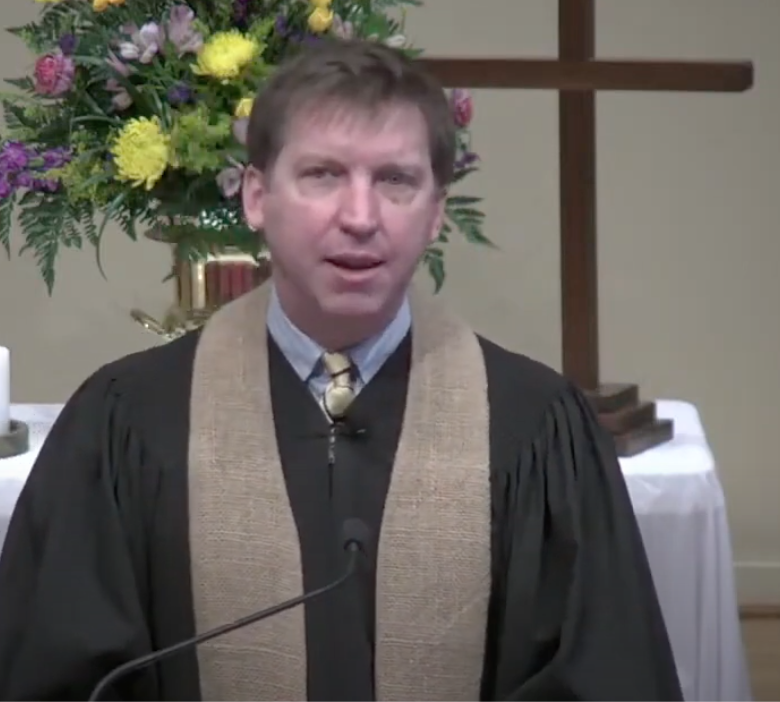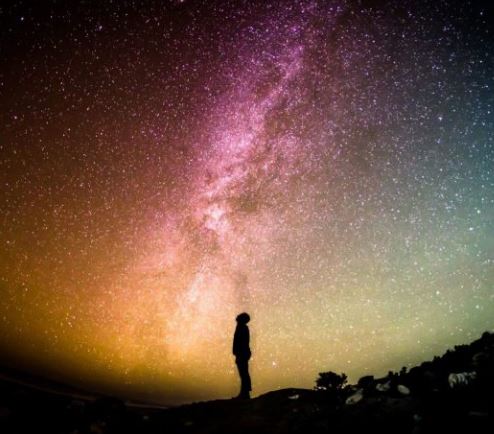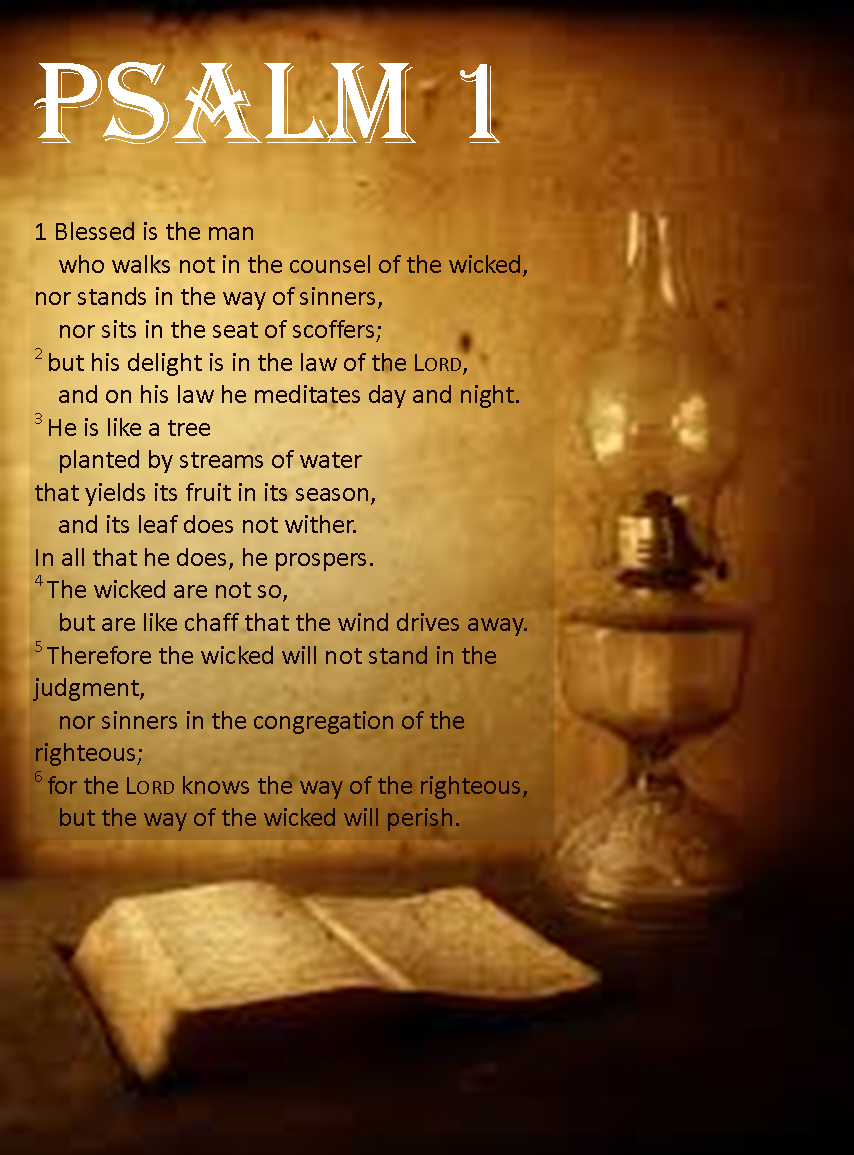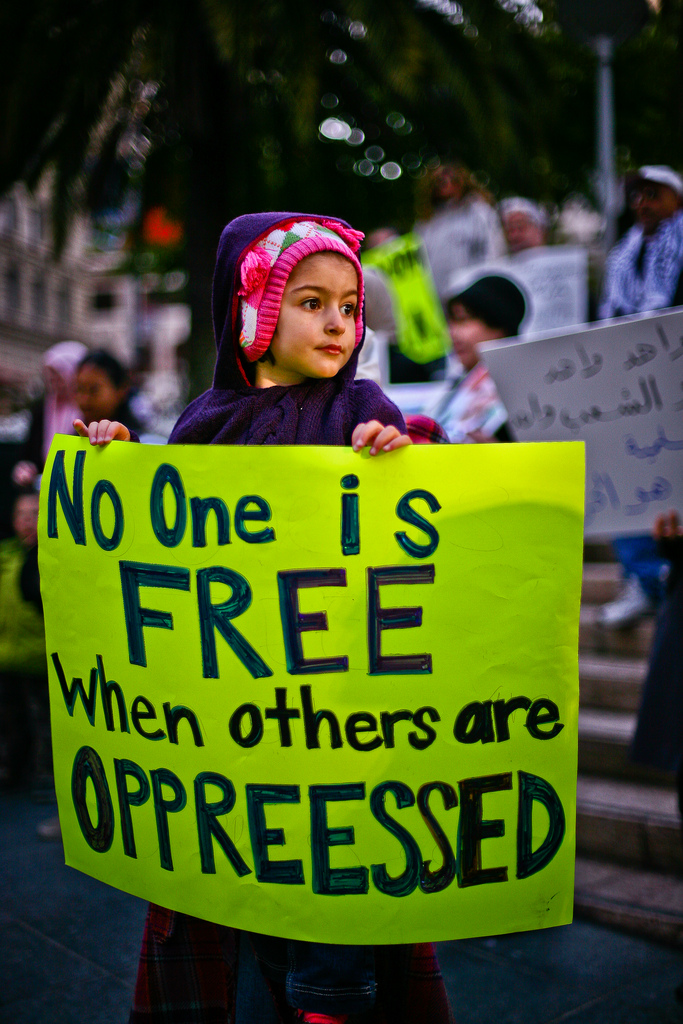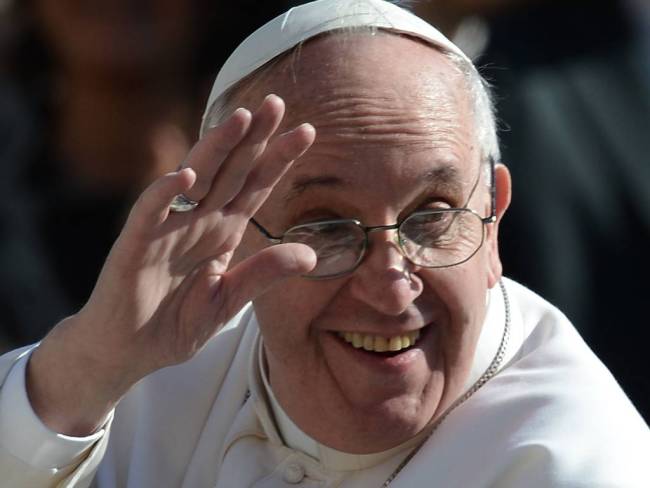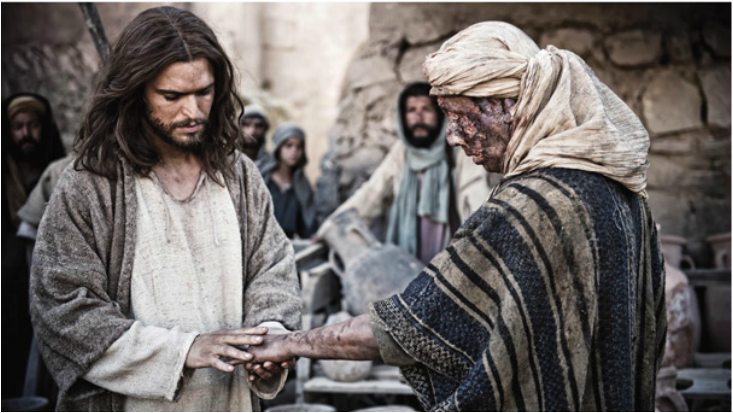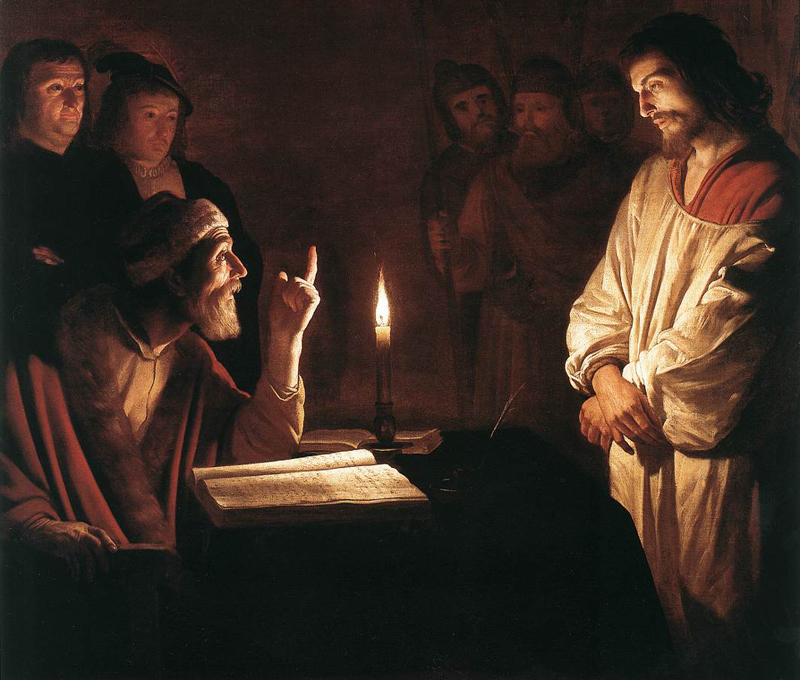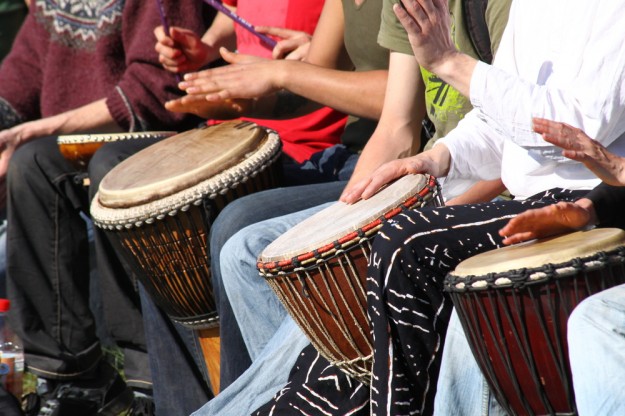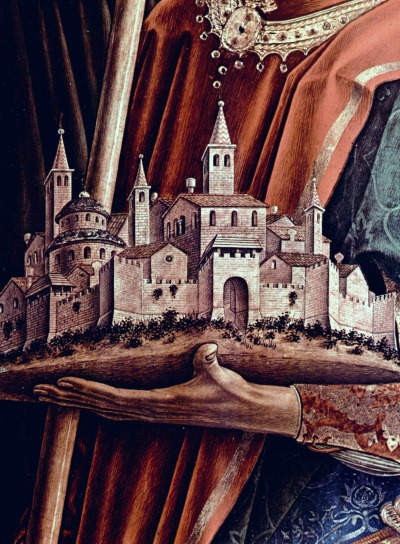I pray, and look to scripture, and consider our role as people on an ever-changing planet as residents in and stewards of creation.
Our Current Situation. We live in a time in which the possibilities for evil are multiplying as fast and possibly faster than the good being accomplished by our innovations.
How are we complicit in the sin of the world? (A Sermon from Psalm 51)
Before we can move on, though, we need to be honest with ourselves. Before we can get to the prayer, “Create in me a clean heart” (51.10), we have to face our sins. Saying, “Create in me a clean heart,” reflects an inner desire for God’s purification. The words are a confession of our need for change. It’s so easy to point to the killer, the public official who said the wrong words, the rioters at the Capitol, the conspiracy theorists, and the anti-vaxxers. We say, They’re the ones with a problem. They are the hateful ones. Not me.
While you can choose to believe in anything, I think faith requires a little more structure. Something more rigid. Something with tradition and maybe even ritual. Something with, God forbid, rules. For a while the faith we choose, or make up, is dependent on the limits of our knowledge, culture and experience, so that faith, definitively chosen, or made up, limits our expression of free will as it imposes on us rules not to be violated.
Out of the mouths of babes comes either curiosity and wonder or doubt and defiance. On either extreme the truth that emerges is always a question: “Why?”
Can a person be both a progressive Christian and a political conservative?
The Psalm introduces, but barely describes, the way of the wicked vs. the way of the righteous. The psalmist surely sings of non-believers and believers, but today I think the division is appropriate for paths that begin with and defend different interpretations of the same Word. Can they possibly end up at the same place?
I’ve been spending a lot of time with psalm 123 lately. The church I attend had a session on the theology of mental illness and this psalm speaks directly to the mindset behind the stigma that so many, like me, with serious mental illness confront.
Taking time to be in stillness is important for physical and mental well-being, and it is absolutely vital if we want an inner experience of spirit. It is not easy to quiet the storms of excitement and learn to be comfortable with stillness. Providing opportunities to practice is a priceless gift we can give children.
When our identity is defined in outward ways, we are going to feel insecure because outward definitions always change. If we understand our identity as changeless spirit, then it is easier to let go of our attachment to our physical self. Jesus and other spiritual teachers have taught us that a spiritual path and our experiences on that path will lead us to a deeper understanding. It isn’t enough to just read the words or have the beliefs — we need to act in harmony with those beliefs in order to be more aware of who we really are. The world will tell us that our security depends on money in the bank or the right clothes or an important job, but we know all those things are temporary. True security that lasts forever comes from discovering the reality that we are spiritual beings. With that knowledge, we can face anything, even our fear of death. We can’t force children to feel secure, but we can encourage them to find that truth within themselves and live from that experience. We can also talk about death in a way that is not fearful. Our Western society does much to teach fear of death. We may not know what happens after we die, but if we are secure in the knowledge that our true self does not die, it only grows and evolves, then we need not fear death or any outward physical changes that happen to our human body.
Submitted by Luciano Kovacs
The reality of global climate change, resulting from the impact of accumulated human activities, make the renewal of the earth an urgent imperative.
In this article, I would like to point out 3 crucial problems that arise when one begins with “plain truths” about the book rather than the Christ, the Logos, the “structuring principle of reality.” (John 1:1–5)
We know what to do. The Universal Declaration of Human Rights begins: “Whereas the peoples of the United Nations have in the Charter reaffirmed their faith in fundamental human rights, in the dignity and worth of the human person and in the equal rights of men and women and have determined to promote social progress and better standards of life in larger freedom.” Unitarian Universalists claim the “inherent worth and dignity of all humanity.” Christians claim the Apostle Paul’s ecstatic revelation that “You are no longer Jew or Greek, no longer slave or freeborn, no longer ‘male and female.’ Instead you all have the same status in the service of God’s anointed Jesus.” Leviticus 19:18 says, “Love your neighbor as yourself.” Jesus said, “Love your enemies.”
“LAUDATO SI’, mi’ Signore” – “Praise be to you, my Lord”. In the words of this beautiful canticle, Saint Francis of Assisi reminds us that our common home is like a sister with whom we share our life and a beautiful mother who opens her arms to embrace us. “Praise be to you, my Lord, through our Sister, Mother Earth, who sustains and governs us, and who produces various fruit with colored flowers and herbs”.
Civilization defines justice as retribution – payback; an eye for an eye. But the deeper meaning of justice is distributive: the rain falls on the good, the bad, and the ugly without partiality. Civilization does not use that definition except in cases where there is clearly injustice if partiality enters the picture.
Satire and Blasphemy in the Teachings of a Galilean Sage
Radical religious extremists with a distorted view of Islam commit horrific acts of terror, executing the staff of a small satirical French publication. The satirists had dared to depict the Prophet Mohammed in cartoon caricature; all the while lampooning those misbegotten adherents who in turn regard such irreverent acts as blasphemous. The Western world reacts with outrage and defiance to such an affront. World leaders join a million person protest and unity march through the streets of Paris, chanting “Je Suis Charlie,” in defense of freedom of speech, and on behalf of the publication’s name. While a clear distinction might be drawn between the use of words and the vehement reactions they may incite, more profound underlying questions remain. While anti-blasphemy laws are common in Muslim countries, countless other "secular" countries have laws against the defamation of religion, as well. Once the dust settles and more thoughtful discussion ensues, one might ask what constitutes the differences between hate speech and freedom of expression? This commentary consider s esus' use of what was deemed blasphemous satire, it's intended purpose, and well-known consequences.
For those like me who see Jesus, not as the divine Son of God in our midst, but as a courageous sage and social prophet, and for those of us who see God as other than an all-powerful distant deity – the language of reverence is rooted in the story of existence and the universe itself. That becomes a religious story whispering of a larger meaning of our existence or in Bumbaugh’s words each of us is “a self present in the singularity that produced the emergent universe; a self present at the birth of the stars; a self related through time to every living thing on this planet; a self that contains within it the seeds of a future we cannot imagine in our wildest flights of fantasy.” That non-traditional evolutionary sacred story invites us to stand in awe; and it calls us to create a whole new vocabulary of reverence even as we commit to cherishing and caring for the earth.
The dry bones raised by Ezekiel are a metaphor for those who died in the service of God’s justice: those who died working to restore God’s distributive justice-compassion to God’s Earth, and who themselves never saw the transformation. The army of dry bones is an army exiled from justice. Fairness demands that if Jesus was resurrected into an Earth transformed into God’s realm of justice-compassion, then all the other martyrs who died too soon should also be raised with him. “But in fact,” Paul writes in 1 Corinthians 15:20, “Christ has been raised from the dead, the first fruits of those who have died.” It is the Christ – the transformed and transfigured post-Easter Jesus – who has started that general resurrection, which restores justice-compassion to a transformed Earth. The transformation has begun with Jesus, and continues with you and me – IF we sign on to the program.
So what do I mean by a sacred community or spiritual community, or as Peck would call it a true community? I refer here to an intentional community with an identifiable common purpose. Maybe that purpose is simple to grow spiritually as individuals. It is a community where one can transcend oneself and experience a sense of the interconnectedness of life. It is a community in which each member seeks to see and relate to the divine or the sacred in the other.
Jerusalem, Now and When?
Why would a Jewish American doctor risk serving the medical needs of Palestinian children in the occupied territories of the West Bank?
Paul is not talking about life after death. Paul is talking about embracing the challenge of distributive justice-compassion –“the great work” – here and now. John’s Jesus assures us that “the spirit of truth will testify on my behalf,” not about the insane claim that he was God, nor about the resuscitation of a corpse.
Regarding Heaven and Hell; Ah, but a man's reach should exceed his grasp, or what's a heaven for? - Robert Browning. An evangelical pastor of a mega-church, Rob Bell, creates a stir when he writes a little book, suggesting when it comes to a place called heaven, there's room for everyone. What the hell?
Without an omnipotent God, and without a clear vision of an afterlife, what do I, as a progressive Christian, have for support when death draws near? The answer is simple: I find support in the same realities that have sustained me through life.



